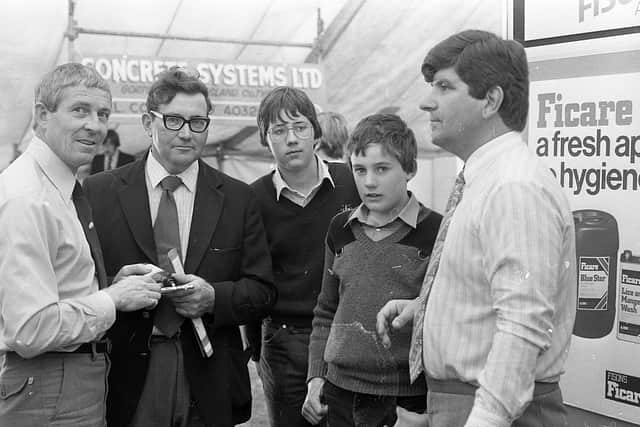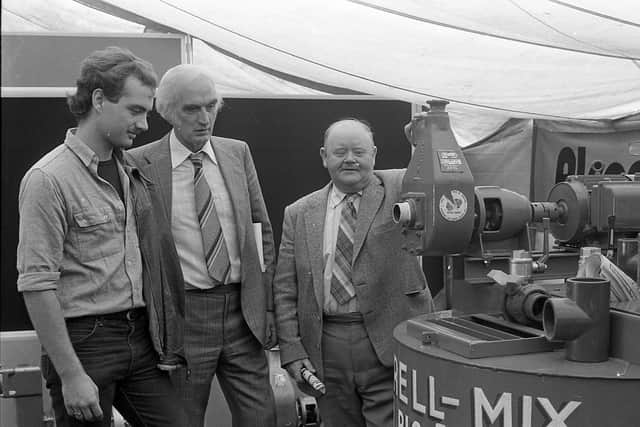Bygone Days: Welcome for EU funds as farmers face 'evil days' of bankruptcy
and live on Freeview channel 276
UFU general secretary Vernon Smyth said that it was gratifying to note that the European Commission recognised the magnitude of the problems facing Northern Ireland. agriculture as a result of the long period of disastrous weather.
The provision of a small quantity of cheaper feeding stuffs, proposed by the commission, but yet to be ratified by the Council of Ministers, represented an important breakthrough in the efforts being made to find help for the industry.
Advertisement
Advertisement
“The union leadership, when it met Lord Lyell on September 10, and the Secretary of State on September 21 presented a list of over a dozen points designed to aid all those sectors which had been severely affected by the weather.


“Although the question of intervention of grain transfer was discussed at both meetings, it had not been one of the points made by the union because it was not considered by us as being amongst the most urgent possibilities.
“Indeed, we recognised that such a suggestion, while being helpful to some sectors of the industry, would not necessarily filter through to those in greatest need, and could, at the same time, prove damaging to another sector which was already in serious distress,” he said.
He said this was not an unreasonable view for the Union to take.
Advertisement
Advertisement
“However, now that a proposal to move some intervention grain to Northern Ireland has been made by the Commission, it would be churlish of the union to reject it as unhelpful. Clearly such a move will be helpful, but the union must seek to find a mechanism which will ensure that the help is directed to the most needy, and, at the same time, will avoid damaging the interests of an important sector of the industry, namely cereal growers.


“To put the whole thing in some sort of perspective, Northern Ireland uses annually some 800,000 tonnes of cereals, by-products and cereal substitutes, of which about half is cereals. We believe that there will be a technical additional demand for cattle feed this winter of about 240,000 tonnes, largely as cereals, to make good fodder shortage. The value of 40,000 tonnes at the proposed price level has been put at around £1 million to the industry. It is not difficult to calculate what this could mean in terms of reduced costs per head of livestock for any sector of the industry.”
Mr Smyth continued: “Clearly, therefore, the union cannot regard this proposal as the whole answer to the industry's problems. We will be meeting the Secretary of State again on Monday, and we will be putting forward our proposals for assisting the industry to a much greater level, and on a much more comprehensive basis.”
Mr Smyth concluded: “During the last few days, the union has been inundated with reports of adverse movements in the offer prices for home-produced cereals. Bearing in mind the European proposal remains just that – a proposal – the union does not believe that there is justification for any hold back on the purchase of grain at realistic prices from home growers.”